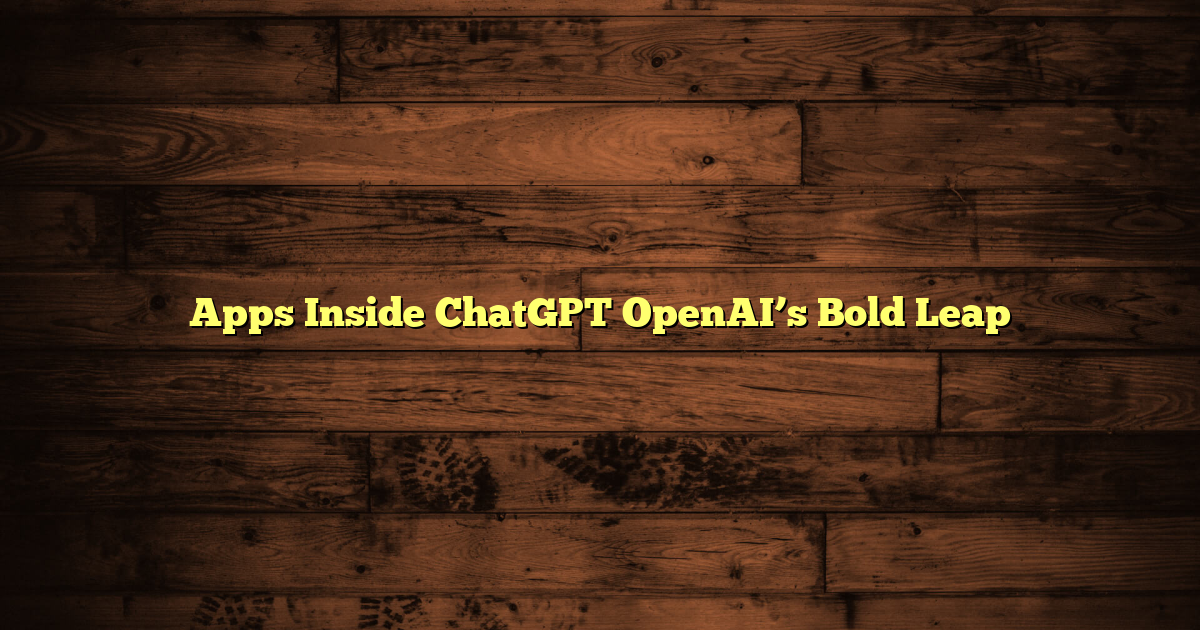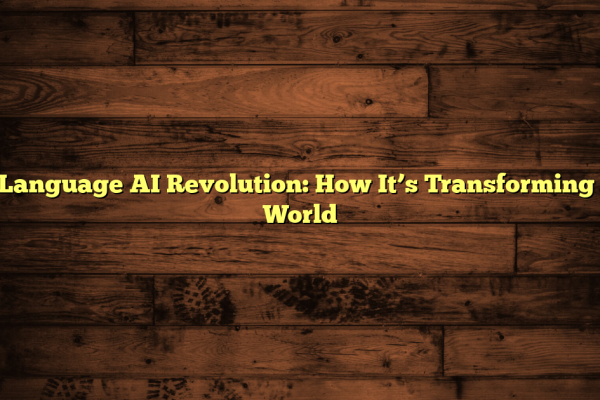Apps Inside ChatGPT OpenAI’s Bold Leap
Apps Inside ChatGPT: OpenAI’s Bold Leap into the Future of Interactive AI
Updated October 2025 – by Simeon Bala
Table of Contents
What is the Apps SDK?
OpenAI just took a major step in turning ChatGPT from a chat assistant into a platform for interactive applications.
The new Apps Software Development Kit (SDK), launched on October 6, 2025, allows developers to build third-party apps directly inside ChatGPT’s interface.
This SDK is powered by the Model Context Protocol (MCP) — an open standard that connects ChatGPT to external tools, databases, and APIs in real time.
Developers can now:
-
Build custom integrations that feel native to ChatGPT.
-
Shape their app’s chat flow and interface.
-
Connect to external data sources securely.
This transforms ChatGPT from a “question-answer” tool into a complete digital workspace, where users can take action — not just get answers.
How Does the Open-Source Model Work?
The Apps SDK is open source, meaning anyone can build and integrate their own app.
OpenAI’s approach promotes developer freedom and transparency:
-
Apps run on any MCP-supported platform.
-
Developers can integrate custom backends, user logins, or paid tiers.
-
OpenAI provides public documentation, sample code, and interface design guides.
This ecosystem encourages a community-driven expansion of ChatGPT, ensuring innovation isn’t limited to OpenAI alone.
What About Safety and Privacy?
Security remains front and center. OpenAI’s updated App Policy Framework enforces strict rules on:
-
Privacy transparency – every app must clearly disclose what data it accesses.
-
User control – you must approve each app’s permissions before it runs.
-
Data minimization – apps can only collect information essential to their function.
When you activate an app, ChatGPT clearly displays:
-
What data types will be shared.
-
Links to the app’s privacy policy and terms of service.
By late 2025, users will even be able to choose exactly which data fields each app can access – giving full control over personal information.
Additionally, OpenAI has confirmed that data shared with apps is handled under each app’s own privacy policy, and approximate location data (city/region) may be used to personalize results (e.g., local Zillow listings).
“You remain in control of what each app can access. We believe privacy should be a feature, not an afterthought.”
– OpenAI, Help Center (2025)
How Will Apps Roll Out?
The rollout is progressive and global:
-
Apps are already available to all logged-in ChatGPT users outside the EU across Free, Go, Plus, and Pro plans.
-
OpenAI is partnering with pilot developers to refine the experience before full-scale release.
Pilot Apps Available Today:
-
Booking.com – Plan your next trip without leaving the chat.
-
Canva – Turn outlines into stunning slides.
-
Coursera – Ask questions as you watch a course video.
-
Expedia – Organize a getaway in minutes.
-
Figma – Turn sketches into FigJam diagrams.
-
Spotify – Build party playlists on the fly.
-
Zillow – Explore homes on an interactive map.
More pilot partners are expected to join by late 2025, including productivity, finance, and education-focused tools.
OpenAI will soon open app submissions for all developers, paving the way for thousands of community-built ChatGPT apps.
What is ChatGPT Pulse?
Alongside Apps, OpenAI launched ChatGPT Pulse – a smart assistant that learns from your chats, activity, and connected apps to give timely, proactive updates.
Pulse isn’t just a notification system; it’s an adaptive layer that watches for relevant moments to act.
Examples:
-
Suggesting a Coursera app when you discuss learning goals.
-
Notifying you about an upcoming booking through Booking.com.
-
Nudging you with reminders or document drafts before deadlines.
Initially available in preview mode, Pulse improves as users interact, offering smarter predictions over time.
As it integrates deeper with connected apps, Pulse turns ChatGPT into a context-aware personal AI coordinator – anticipating needs before you type them.
What Does This Mean for AI’s Future?
The release of Apps SDK and Pulse signals OpenAI’s transition from chatbot to action engine.
Here’s what it unlocks:
-
Unified experience: Everything – from travel planning to document design – happens inside one chat window.
-
Developer innovation: The open SDK means the next big app could be built by anyone, anywhere.
-
Human-AI partnership: AI now performs tasks, not just offers text responses.
-
Privacy assurance: With opt-in data sharing, users stay in control of personal data.
This evolution positions ChatGPT as the “operating system for conversation-driven computing” – where the AI not only talks but acts, connects, and delivers.
“Apps and Pulse together redefine productivity — turning conversations into actions.”
— Simeon Bala, Tech Analyst, 9jaoncloud
FAQ
Who gets access to ChatGPT apps first?
All non-EU users on Free, Go, Plus, and Pro plans can use pilot apps now. EU availability is expected later in 2025.
Does Pulse replace normal ChatGPT chats?
No. Pulse works with your chats – adding proactive suggestions based on what you’re doing.
How do I stay safe with app data?
Always review app permissions. Each app lists what information it accesses before activation.
Can I build my own app?
Yes! Developers can use the open-source Apps SDK to create and publish apps directly within ChatGPT.
References
Key Takeaway
OpenAI’s Apps SDK and Pulse transform ChatGPT into an ecosystem of intelligent, privacy-respecting, and integrated tools — a future where chat becomes the central interface for work, learning, and life.




